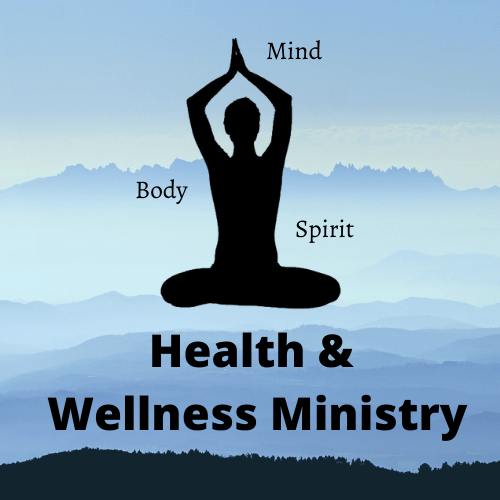Healthy Living #15: Vaccines for Fall – Whether and When

Healthy Living #15
Vaccines for Fall – Whether and When
from your CCC Health & Wellness Ministry Team
September 10, 2023 (Updated September 20, 2023)
Covid cases have risen. Flu season is approaching, and new vaccines for the virus known as R.S.V. recently became available. This swirl of developments has left many people wondering which vaccine shots they should be getting and when. This Healthy Living tip will offer guidelines you can review with your healthcare provider to see what is best for you and your health.
The main message from experts is that Americans should shift how they think about respiratory viruses. For the past few cold-weather seasons (which are also when viruses spread most), we obsessed over Covid. This year we should take a broader approach. “It’s not only Covid you have to think about,” said Dr. Peter Hotez, a vaccine expert.
The good news is that there are vaccines and treatments that reduce risks from all major viruses likely to circulate this season, including Covid. “For the past couple of seasons, the notion was that Covid controlled us,” Dr. Nirav Shah, the CDC’s principal deputy director said. “The tables have turned, not just for Covid, but for the others.”
R.S.V.
The most immediate step worth considering involves R.S.V., which stands for respiratory syncytial virus. “It is a common winter virus that usually causes mild cold-like illness but can be dangerous for young children and older adults,” says Emily Martin, an epidemiologist at the University of Michigan.
This spring, the federal government approved the first R.S.V. vaccines, for people aged 60 and older. If your provider says you qualify, consider getting your R.S.V. vaccine shot now. Why now? R.S.V. tends to circulate somewhat earlier than the flu. If you’re 60 or over, “You don’t want to get into November without having an R.S.V. vaccine,” said Dr. Ashish Jha, the former White House Covid adviser and current dean of Brown University’s public health school.
What about infants? Although there is no R.S.V. vaccine for them, children under 8 months (and some who are older), can receive an advance antibody treatment to prevent severe illness. Parents may want to ask their pediatrician about it. It’s sufficiently new that not all doctors have it yet.
Influenza
The flu officially kills about 35,000 Americans in a typical year, and the true toll is probably higher. As Jha says, “the flu also weakens the body in ways that make heart attacks and strokes more common, especially among the elderly. We underestimate the impact that respiratory viruses have on our population. The flu can knock people out for weeks, even younger people.” Yet the flu’s toll would be lower if more people got a vaccine shot. In recent years, less than half of Americans have done so.
This year’s flu vaccine shots are now available at drugstores, hospitals, doctor’s offices and elsewhere. You may want to wait until late September or October to get one though. The heaviest parts of flu season tend to occur between December and February. If you wait, the shot’s protection against severe illness will still be near its strongest level during those months.
Covid
The best defenses against Covid haven’t changed: vaccines and post-infection treatments. They are especially important for vulnerable people, like the elderly, and the immune-compromised. “Overwhelmingly those who are being hospitalized are unvaccinated or undervaccinated,” Hotez said.
The federal government is on track* to approve updated Covid vaccine shots, designed to combat recent variants, in mid-September {*Please see 9/20 Editorial Update, below; this has now been approved}. Once it does {i.e. as of now}, all adults should consider getting a booster shot {a.k.a. updated covid shot}. Many Americans have now gone more than a year without one, and immunity has waned.
Yes, severe Covid remains rare in people under 50, especially if they have received a vaccine or had the virus – and nearly all Americans fall into one or both categories. But Covid can still be nasty even if it doesn’t put you in the hospital. A booster shot {a.k.a. updated covid shot} will reduce its potency.
Shah argues that children (over 6 months old) should also get a Covid shot this fall, even though their own Covid risk is very low. “We should be thinking bigger than just ourselves,” he says. “Are you going to visit your grandpa or grandma?” Are you really sure you’re not going to give Covid to them?” Even some boosted older people can get severe versions of Covid, especially if they have other medical conditions that make them more vulnerable.
A good strategy for many people may be to get their Covid booster {a.k.a. updated covid shot} and flu shot at the same time, in late September or October. And if you’re older and you get Covid, talk to a doctor about taking Paxlovid or a different treatment. It can make a big difference.
The Bottom Line
The ideal time to get different vaccine shots has been outlined above. But don’t exaggerate the importance of timing. As Shah said, “What I care more about is that you get all three shots if you’re eligible rather than when you get all three.” One more thing: Be sure to check your at-home Covid tests to see if they have expired.
Adapted from “The Morning” New York Times article published September 1, 2023, written by David Leonhardt. (Original article is published here: https://www.nytimes.com/2023/09/01/briefing/covid-flu-vaccines.html)
*Editorial Update Regarding Covid Vaccination
September 20, 2023
As of today, the updated covid shots have been fully approved for everyone ages 6 months and older, and are available now. The CDC recommends that everyone 6 months and older get an updated COVID-19 vaccine. They say: “If you have not received a COVID-19 vaccine in the past 2 months, get an updated COVID-19 vaccine to protect yourself this fall and winter.” Updated COVID-19 vaccines from Pfizer-BioNTech and Moderna should be currently available at many pharmacies and doctors’ offices. If you would like to learn more, or if you have questions (what if you had Covid recently, for example? Spoiler alert: “if you’ve recently had COVID, that infection should provide strong protection from severe disease and reinfection. Waiting longer than the CDC’s guidance of 3 months is not recommended for high-risk groups, but it’s something people can discuss with their doctor.”), this article will give you the full scoop in more detail, as well as this one.
Finally, an editorial note about terminology: Is the new covid vaccine considered a “booster”?
“The FDA has shifted from calling this a booster to calling it an updated COVID vaccine. The change in wording reflects that we’ve begun treating COVID like we treat influenza, with annual vaccination. We encourage people to get their “annual flu shot” not a “flu booster.” Calling it an updated COVID vaccine also reflects that we’re not just boosting existing immunity from previous vaccination; rather, the vaccine builds a new immune response to variants that are currently circulating. It’s likely we’ll still see it referred to as a booster in some instances, but it’s all the same shot.” – from the article linked above, by Johns Hopkins’ School of Public Health.
